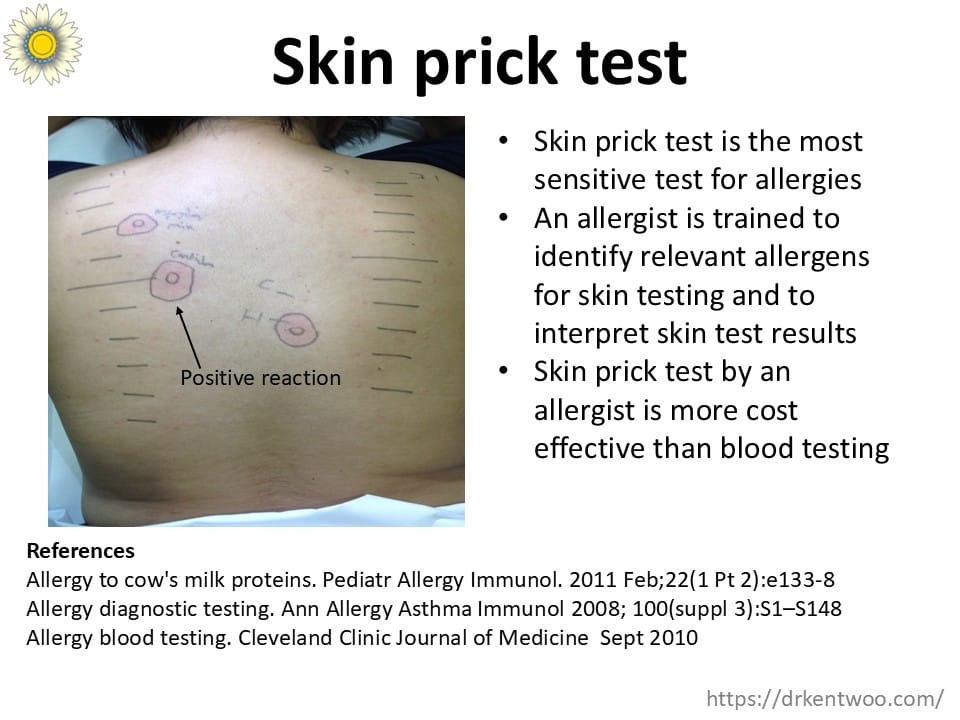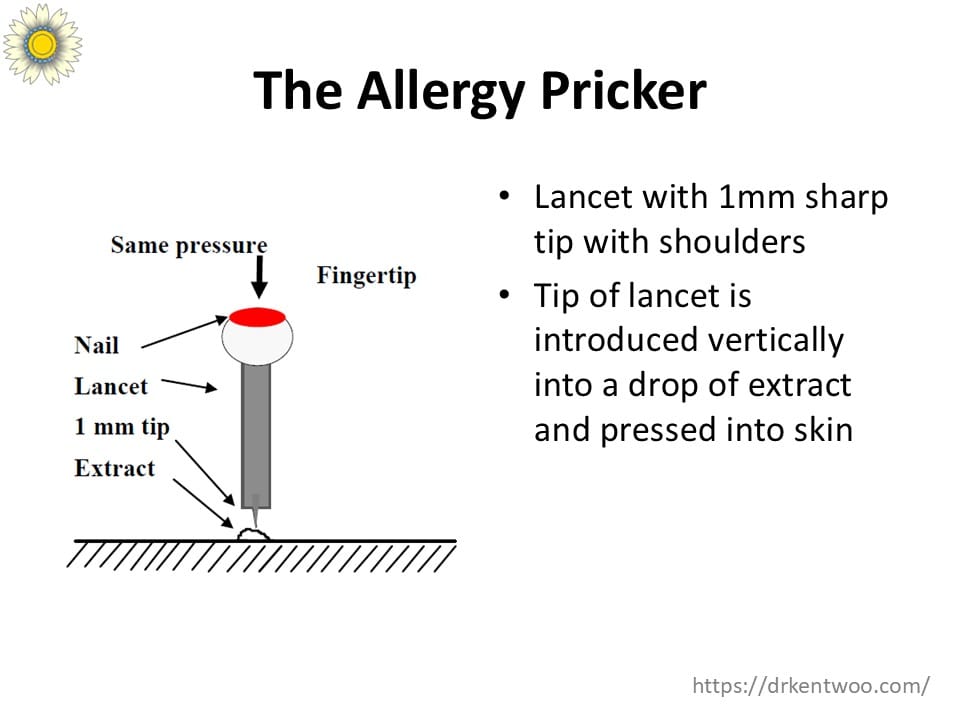Why Choose a Skin Prick Test for Allergy Diagnosis?
A skin prick test (SPT) is the most accurate and cost-effective way to diagnose allergies. It provides faster, more reliable results than blood tests and can detect allergic reactions that blood tests cannot. Since it directly tests how your skin reacts to allergens, it helps allergists pinpoint specific triggers in just 15 minutes.

Before taking the test, stopping certain medications is crucial to ensure accurate results. Read on to find out which medications to avoid and why.
What Is a Skin Prick Test?
A skin prick test (also known as a puncture or scratch test) is a simple, painless procedure used to identify allergic sensitivities. The test involves applying tiny amounts of allergens to the skin (usually on the forearm or back) using a special allergy pricker.

Why Is the Skin Prick Test Better Than a Blood Test?
✔️ More Accurate – Directly tests how your immune system reacts to allergens.
✔️ Faster Results – Immediate results in 15 minutes, while blood tests take days.
✔️ Tests a Wider Range of Allergies – Can detect food allergies, pollen, dust mites, pet dander, insect venom, and molds, which some blood tests miss.
✔️ Cost-Effective – More affordable than comprehensive blood panels.
If you’re experiencing unexplained allergy symptoms, a skin prick test can provide clear answers and help create a personalized treatment plan.
Medications to Stop Before a Skin Prick Test & Why It Matters
Certain medications block allergic reactions, which can lead to false-negative results (where you appear allergy-free even if you’re not). To ensure accurate results, you must stop these medications before testing.
Why Do Some Medications Need to Be Stopped Longer?
- Short-acting antihistamines (e.g., chlorpheniramine, diphenhydramine) should be stopped 3 days before the test
- Long-acting antihistamines (e.g., loratadine, cetirizine, fexofenadine) stay in your system longer and should be stopped 5–7 days before testing.
- Certain antidepressants have antihistamine-like properties and require at least 2 weeks of discontinuation for an accurate test.
Common Medications to Stop Before Skin Prick Testing
(For a detailed list, visit Medications to Stop Before a Skin Prick Test)
🚫 Antihistamines (5-7 days before test) – Found in allergy meds, cold tablets, sinus relief, and hay fever medications.
🚫 Certain eye drops & nasal sprays – Some contain antihistamines that interfere with test results.
🚫 Tricyclic antidepressants & sedatives (14 days before test) – These can suppress allergic reactions, leading to false negatives.
✅ Safe to Continue:
✔️ Asthma inhalers (steroids & bronchodilators)
✔️ Leukotriene antagonists (e.g., Singulair, Accolate)
✔️ Oral theophylline (for asthma and lung conditions)
Always consult your doctor before stopping any prescribed medications.
How Is a Skin Prick Test Done?
1️⃣ Your allergist applies small drops of allergens to the skin.
2️⃣ A special pricker lightly scratches the surface to introduce the allergens.
3️⃣ The test site is monitored for 15 minutes. If you’re allergic, a small red bump (wheal) will appear.
4️⃣ The results are measured and discussed immediately with your doctor.
The procedure does not cause bleeding and feels like a slight scratch.
📺 Watch this video to see the test in action: Skin Prick Test: How It’s Done
Why Didn’t You Tell Me to Stop My Medications Before My Appointment?
At the Allergy & Immunology Clinic, we don’t ask patients to stop medications before their first visit. Here’s why:
✔️ We need a full consultation first – Different patients require different testing methods.
✔️ Stopping medications too early can be unsafe – Your allergy treatment should not be disrupted without professional advice.
✔️ Not all medications affect skin testing – Some inhalers and asthma meds are safe to continue.
Before making any changes to your medications, always consult with your doctor first.
FAQs: Skin Prick Test
1. Can I take allergy medication before a skin prick test?
No. Antihistamines must be stopped at least 5-7 days before testing to ensure accurate results.
2. Can I drink coffee or eat before a skin prick test?
Yes, you can eat and drink as usual before the test. However, avoid caffeine if you’re prone to anxiety, as it may make you feel restless.
3. What happens if I accidentally take antihistamines before the test?
Let your doctor know immediately. The test may need to be rescheduled to ensure accuracy. If appropriate, we can also proceed to conduct a blood test instead.
4. Can children undergo a skin prick test?
Yes! Skin prick tests are safe for children of any age and are commonly used to diagnose food allergies, asthma, and eczema triggers.
5. How long does a skin prick test take?
The test itself takes about 15 minutes, with total procedure time around 30–45 minutes.
6. Is this the same as a patch test?
Skin prick test and patch tests are completely different tests. Patch test is to diagnose allergic contact dermatitis.
7. What about blood tests?
Not everyone is suitable for skin prick tests. For example, some patients are unable to stop their antihistamines due to their severe medical condition. In this situation, we will proceed to a blood test to measure for specific IgE towards suspected allergens.
Book Your Allergy Test Today!

A skin prick test is one of the most accurate and cost-effective way to diagnose allergies. If you’re experiencing unexplained allergy symptoms, schedule an appointment today! Proper consultation by The Allergy Immunology Clinic team will ensure you get the proper evaluation.
📅 Book Now: Schedule Your Consultation




